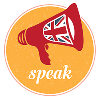The IELTS is the world’s most recognised English-speaking test and is accepted by over 11,000 organisations in 140 countries around the world.
Unfortunately, as many as 50% of the people who take their IELTS test fail to achieve their desired score. Whether you’re aiming towards a specific goal with your IELTS results, or you simply want to ensure the proficiency of your English speaking skills, preparation is key for ensuring that you’re not amongst them.
In this in-depth guide, we consider what effective IELTS preparation should look like, and how it can enhance your chances of securing the score you require.
What is the IELTS?
The IELTS (International Language Testing System), is a widely recognised English proficiency test that’s run by the British Council in partnership with IDP Education and Cambridge Assessment English.
Rather than operating on a pass-or-fail system, the IELTS rewards different proficiency grades, which assess English language abilities across four skills, which are:
People have many different reasons for taking the IELTS, including a desire to generally improve their English speaking skills, but primary uses for a high IELTS score include:
When you embark on IELTS preparation, you may, therefore, be working to strict time frames, and experiencing a lot of pressure about your test results. With additional tests also costing more in terms of testing itself and ongoing tutoring, effective IELTS preparation is crucial.
Professional classes are the best way to ensure that you’re preparing for your test in the right ways. You can also improve your chances of success with self-led IELTS preparation at home.
The Main Difficulties With IELTS Preparation
The 50% of people who don’t receive their desired IELTS score are a testament to the fact that IELTS preparation isn’t always easy. In fact, there are a few fatal mistakes that could impact your score despite your best preparation efforts, and these include:
Unfortunately, as many as 50% of the people who take their IELTS test fail to achieve their desired score. Whether you’re aiming towards a specific goal with your IELTS results, or you simply want to ensure the proficiency of your English speaking skills, preparation is key for ensuring that you’re not amongst them.
In this in-depth guide, we consider what effective IELTS preparation should look like, and how it can enhance your chances of securing the score you require.
What is the IELTS?
The IELTS (International Language Testing System), is a widely recognised English proficiency test that’s run by the British Council in partnership with IDP Education and Cambridge Assessment English.
Rather than operating on a pass-or-fail system, the IELTS rewards different proficiency grades, which assess English language abilities across four skills, which are:
- Listening
- Reading
- Writing
- Speaking
People have many different reasons for taking the IELTS, including a desire to generally improve their English speaking skills, but primary uses for a high IELTS score include:
- Evidence of English proficiency for study purposes
- Business registration requirements in fields including law, medicine, and pharmaceuticals.
- A migration requirement for permanent residency
When you embark on IELTS preparation, you may, therefore, be working to strict time frames, and experiencing a lot of pressure about your test results. With additional tests also costing more in terms of testing itself and ongoing tutoring, effective IELTS preparation is crucial.
Professional classes are the best way to ensure that you’re preparing for your test in the right ways. You can also improve your chances of success with self-led IELTS preparation at home.
The Main Difficulties With IELTS Preparation
The 50% of people who don’t receive their desired IELTS score are a testament to the fact that IELTS preparation isn’t always easy. In fact, there are a few fatal mistakes that could impact your score despite your best preparation efforts, and these include:
- Rushed preparations
- Failing to understand your test options/format
- Prioritising the IELTS test over English language skills
- Overlooking vocabulary
- Failure to join a preparation course

An In-Depth Look at IELTS Preparation
It’s important to approach your IELTS preparations in the right ways to ensure that they’re effective. Keep on reading to find out what ‘good’ IELTS preparation looks like.
Know Which IELTS Test is Right For You
There are primarily two different types of IELTS test, and they each focus on different things and are applicable to different situations. The Speaking and Listening sections in both tests are the same, but you can expect differences in the Reading and Writing sections.
By taking the time to understand this in advance, you can better ensure your desired results with a more tailored revision plan. You can also ensure that your IELTS results are the ones required by your employer, university, or other establishment.
The two IELTS test types can be categorised as follows:
IELTS Academic:
Intended for students who want to study English, or for professionals in academic fields like medicine.
Features vocabulary that’s familiar in an academic setting.
Reading materials include newspapers and journals from a non-specialist academic setting, and will likely cover things such as:
Two academic writing tasks include:
Know Which IELTS Test is Right For You
There are primarily two different types of IELTS test, and they each focus on different things and are applicable to different situations. The Speaking and Listening sections in both tests are the same, but you can expect differences in the Reading and Writing sections.
By taking the time to understand this in advance, you can better ensure your desired results with a more tailored revision plan. You can also ensure that your IELTS results are the ones required by your employer, university, or other establishment.
The two IELTS test types can be categorised as follows:
IELTS Academic:
Intended for students who want to study English, or for professionals in academic fields like medicine.
Features vocabulary that’s familiar in an academic setting.
Reading materials include newspapers and journals from a non-specialist academic setting, and will likely cover things such as:
- Narratives
- Descriptions
- Logical argument
- Etc.
Two academic writing tasks include:
- Task 1: Describing visual information such as a graph or diagram in your own words
- Task 2: Discussing a point of view, argument or problem
IELTS General Training:
Intended for individuals who are moving to an English-speaking country, or people who wish to train or study below degree level.
Assesses everyday English vocabulary skills that may be needed in social situations or workplaces.
GT reading texts are relevant to everyday life as follows:
Two general writing tasks include:
Intended for individuals who are moving to an English-speaking country, or people who wish to train or study below degree level.
Assesses everyday English vocabulary skills that may be needed in social situations or workplaces.
GT reading texts are relevant to everyday life as follows:
- Section 1: Advertisements and timetables
- Section 2: Job descriptions and contracts
- Section 3: Newspapers, magazines, and books
Two general writing tasks include:
- Task 1: Writing a letter in response to a situation
- Task 2: Discussing a point of view, argument or problem
------
It’s important to choose between an Academic or General Training IELTS when booking your exam. You can then use this as a basis for your IELTS preparation. The right exam for you will depend on factors that include:
It’s important to choose between an Academic or General Training IELTS when booking your exam. You can then use this as a basis for your IELTS preparation. The right exam for you will depend on factors that include:
- Your chosen country
- Whether you intend to work/study/live in that country
- The entry requirements of your target country or association
Understand the IELTS Test Format
Understanding the format that your chosen IELTS test will take makes it easier to know what to expect on the day of your exam, and what you should practise beforehand.
There are four different categories for both types of IELTS test, and they are:
You’ll complete the first three of these in order on the same day, without breaks in between. You will then complete the speaking section of your test either later that same day or during an appointment in the next few days.
Remember that the Listening and Speaking sections of the exam are the same for each test type. The format you can expect within each section of your exam is as follows:
----
1. Listening
Questions will include:
Your score of 40 will be converted to the IELTS 9-band marking scale.
Understanding the format that your chosen IELTS test will take makes it easier to know what to expect on the day of your exam, and what you should practise beforehand.
There are four different categories for both types of IELTS test, and they are:
- Listening
- Reading
- Writing
- Speaking
You’ll complete the first three of these in order on the same day, without breaks in between. You will then complete the speaking section of your test either later that same day or during an appointment in the next few days.
Remember that the Listening and Speaking sections of the exam are the same for each test type. The format you can expect within each section of your exam is as follows:
----
1. Listening
- The test takes around 30 minutes, with an additional ten minutes to transfer your answers.
- You will listen to four recordings of a native English speaker, and must answer 40 questions based on these.
Questions will include:
- Multiple choice
- Diagram labelling
- Table completion
Your score of 40 will be converted to the IELTS 9-band marking scale.


Jake Borland
Jake Borland is an experienced English teacher with 20 years in the field. As the co-founder and Marketing Manager of Speak English Institute, he is dedicated to delivering high-quality education both in-person and online. Jake’s passion lies in helping students improve their English skills through engaging and effective learning experiences.

